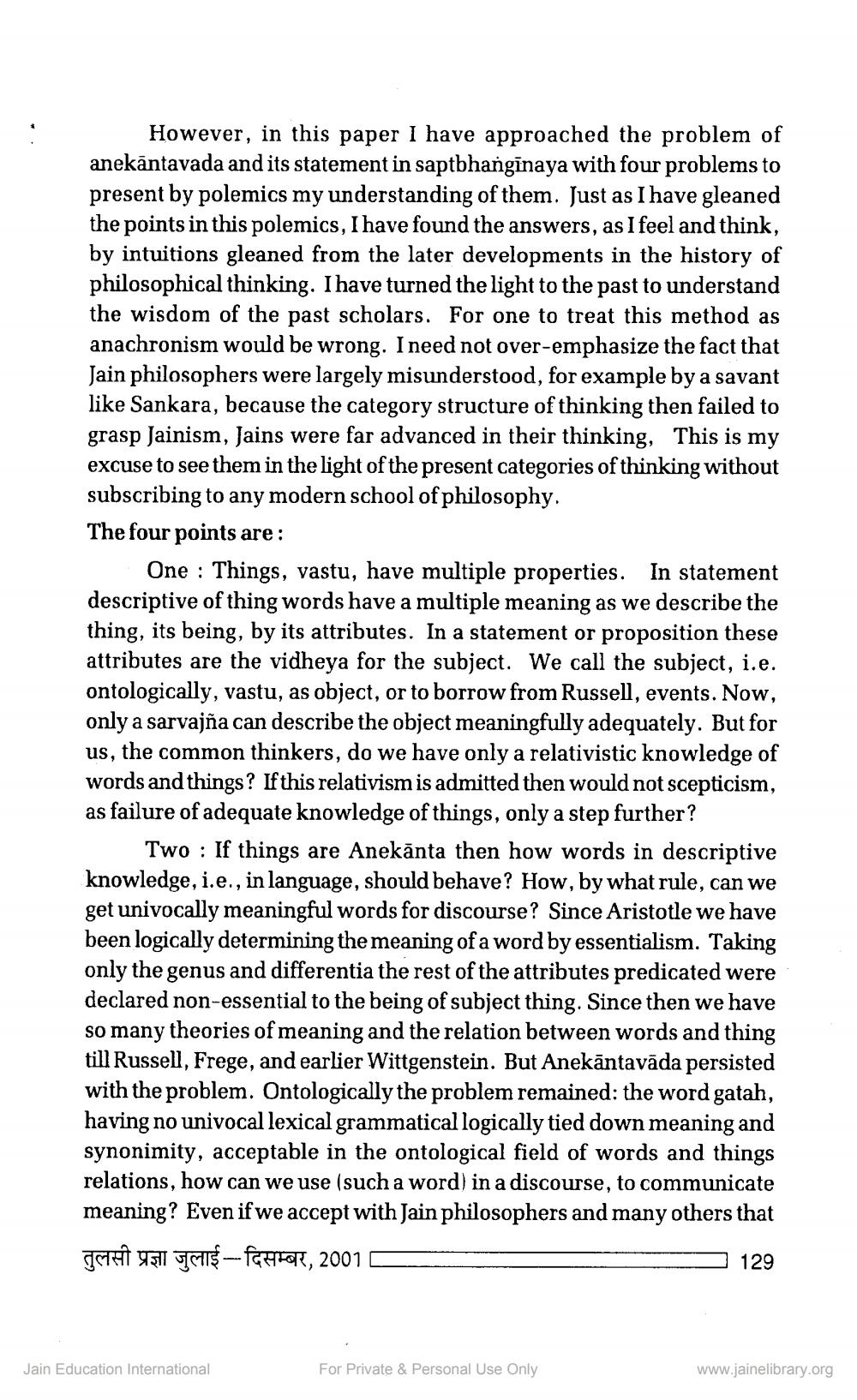________________
However, in this paper I have approached the problem of anekantavada and its statement in saptbhangīnaya with four problems to present by polemics my understanding of them. Just as I have gleaned the points in this polemics, I have found the answers, as I feel and think, by intuitions gleaned from the later developments in the history of philosophical thinking. I have turned the light to the past to understand the wisdom of the past scholars. For one to treat this method as anachronism would be wrong. I need not over-emphasize the fact that Jain philosophers were largely misunderstood, for example by a savant like Sankara, because the category structure of thinking then failed to grasp Jainism, Jains were far advanced in their thinking, This is my excuse to see them in the light of the present categories of thinking without subscribing to any modern school of philosophy.
The four points are:
One Things, vastu, have multiple properties. In statement descriptive of thing words have a multiple meaning as we describe the thing, its being, by its attributes. In a statement or proposition these attributes are the vidheya for the subject. We call the subject, i.e. ontologically, vastu, as object, or to borrow from Russell, events. Now, only a sarvajña can describe the object meaningfully adequately. But for us, the common thinkers, do we have only a relativistic knowledge of words and things? If this relativism is admitted then would not scepticism, as failure of adequate knowledge of things, only a step further?
Two If things are Anekanta then how words in descriptive knowledge, i.e., in language, should behave? How, by what rule, can we get univocally meaningful words for discourse? Since Aristotle we have been logically determining the meaning of a word by essentialism. Taking only the genus and differentia the rest of the attributes predicated were declared non-essential to the being of subject thing. Since then we have so many theories of meaning and the relation between words and thing till Russell, Frege, and earlier Wittgenstein. But Anekāntavāda persisted with the problem. Ontologically the problem remained: the word gatah, having no univocal lexical grammatical logically tied down meaning and synonimity, acceptable in the ontological field of words and things relations, how can we use (such a word) in a discourse, to communicate meaning? Even if we accept with Jain philosophers and many others that तुलसी प्रज्ञा जुलाई - दिसम्बर, 2001
129
Jain Education International
For Private & Personal Use Only
www.jainelibrary.org




